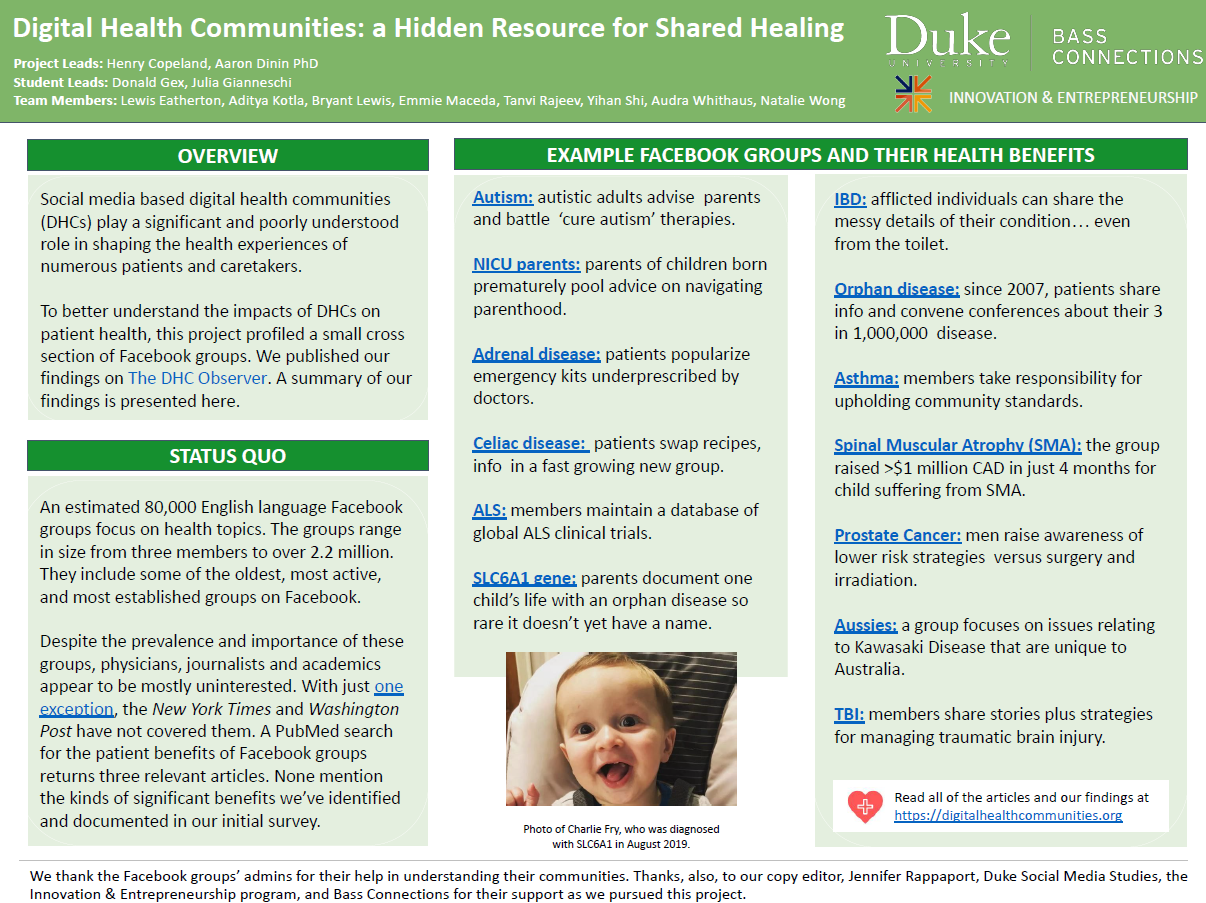
Digital health communities make a huge difference in community members’ disease outcomes. Hopefully as a future physician, I’m able to give suggestions to patients about what communities exist out there.
Degree
Neuroscience ’23
As a member of the Crowdsourced Health team, I worked on one specific category of health communities relating to one disease topic, which was specifically looking at inflammatory bowel disease (IBD).
My team members and I primarily focused on the different Facebook groups that exist around disease progressions and examined how the communities were either advantageous or disadvantageous to the community members, and what unique factors of the communities contribute to the behaviors we observed. We also analyzed what information is being spread in those communities and whether it was supported by professionals and medical providers.
Writing for the DHC Observer was interesting because it was a new platform that I’ve never worked with before. It was essentially like writing a blog article. We aimed to publicize new information to a broad range of people, and so I had to communicate my topic in basic terms of what the IBD Facebook community was about, the benefits or risks of joining such a group and the importance of being aware that these communities exist.
It was also interesting to read my other team members’ articles and compare them with my own. Our articles covered a wide range of topics, but when you analyze them together, they’re all talking about whether these Facebook groups are beneficial to the community members within them. I saw a pattern of how there was a lot of information in these Facebook groups that people didn’t really know about. By publicizing that information, we’re hoping to bring more awareness to the fact that these groups exist.

I think what made this experience unique was that we worked on this project all throughout COVID. COVID affected all these disease categories in a really interesting way, regardless of what the disease category was. It almost pushed the community members closer together. It was a topic for them to talk about in those communities, such as how COVID was affecting this disease specifically and how they could navigate their diseases or symptoms in addition to COVID.
Another unique factor was that everyone was predominantly interacting online during COVID, so these communities grew to much larger sizes. We noticed this trend with Facebook throughout the duration of our project. These communities served as a platform for people to meet and support each other. Seeing whether that growth lasts or if it declines as COVID improves would be another interesting point to examine.
I had never realized how big of a role media and Facebook groups can have on an individual’s life. These support groups make a huge difference in their disease outcomes and that’s really interesting to see. Hopefully as a future physician, I’m able to give suggestions to patients about what communities exist out there. I won’t be able to always be with my patients, and recommending an online community to them could give them continual support. It’s something that I never realized until being a part of this group.
One of the most rewarding aspects of this project was working with all the other team members. Our group was small enough where we got to really know each other, but it was also big enough where there were constantly new ideas and perspectives. I never felt like we were repeating the same thing. People were always growing on each other’s ideas and that’s something I really enjoyed.
I hope that this project will continue in the future. During our research, we found over 100 different disease categories that focused on either Facebook or different platforms. I am excited to see how this project can extend by tackling those other platforms.
September 2021; excerpts from a conversation with Dana Adcock ’22